Pakistan Mathematical Society's 8th Medal of Honour
Pakistan Mathematical Society Awards Prestigious Medal to Late Professor Khwaja Masud
In a solemn investiture ceremony held on January 19, 2024, at the Banquet Hall of the Islamabad Club, the Pakistan Mathematical Society (PakMS) bestowed its esteemed medal to an eminent mathematician posthumously. The 8th PakMS Medal was awarded to the Late Professor Khwaja Masud in recognition of his outstanding contributions to the fields of politics, philosophy, history of science, and mathematics.
The ceremony, attended by members of the Society, saw the sons of the late professor, Dr. Khwaja Yuldrum (a renowned Physicist) and Dr. Khwaja Sarmad (an esteemed Economist), receive the prestigious award on behalf of their beloved father.

The citation in honor of Professor Khwaja Masud was read by Emeritus Professor Qaiser Mushtaq of Quaid-i-Azam University, former Vice Chancellor, and Founding President of the Pakistan Mathematical Society. The citation highlighted Professor Khwaja Masud's luminary status, describing his profound impact on multiple fields and his influential engagement with students over three generations.
Prof Khwaja Masud's exemplary leadership and dedication to academia were emphasized, noting his role as a guiding force for aspiring students since 1944. His commitment to fostering a vibrant educational environment was acknowledged, with special mention of his catalysing influence on intellectual growth within the mathematical community.
Beyond scholarly publications, the citation emphasized the late professor's ability to communicate intricate concepts with clarity and enthusiasm, leaving an indelible mark on the minds of students and colleagues alike. His posthumous receipt of the PakMS Medal serves as a testament to his exceptional contributions to various branches of knowledge, particularly mathematics.
The award recognizes Professor Khwaja Masud's inspiring personality, which cultivated a dedicated mathematical community in Pakistan. His lectures and articles were highlighted as pivotal in shaping the intellectual andscape, creating a lasting legacy that continues to fuel a passion for rationalism among students and colleagues.
The PakMS Medal stands as a symbol of Professor Khwaja Masud's intellectual prowess and enduring impact on the mathematical community in Pakistan, cementing his status as a revered figure in the annals of enlightenment.
Pakistan Mathematical Society's 7th Medal of Honour

PROFESSOR QAISER MUSHTAQ RECEIVES PAKMS GOLD MEDAL
PakMS awards its Gold Medal to Pakistani mathematicians for their lifetime achievements. The 7th PakMS Gold Medal has been given to Professor Dr. Qaiser Mushtaq, Emeritus Professor, Department of Mathematics, Quaid-i-Azam University, Islamabad, Pakistan on 31st December 2021 in an investiture ceremony held at the Annual General Meetingof PakMS.
Professor Qaiser Mushtaq has been awarded the medal in recognition of his lifetime contributions in algebra and in developing mathematics in Pakistan. He has made deep and important contributions in various areas of algebra. His results have substantially influenced research trends in algebra which has led to a plethora of valuable developments.
His breakthrough research work resulted in the final answer to a hundred-year-old problem of G.A.Miller in relation to finite simple alternating groups. His seminal theorems that there are only a finite number of ‘ambiguous numbers’ and that part of the coset diagram containing such numbers form a simple circuit and it is the only circuit in the orbit led to the classification of actions of the extended modular group on the real quadratic irrational numbers.
Professor Qaiser Mushtaq’s research on Hurwitz groups as finite homomorphic images of the modular group described by an invariant element of a finite Galois field and its relation with coset diagrams led to a mechanism for finding all finite simple groups defined on finite Galois fields. He proved a theorem on the question of the frequency of certain fragments occurring in such diagrams.
He partially answered the question raised by Graham Higman that for which triples related to Coxeter groups, all but finitely many alternating and symmetric groups are factor groups of the Coxeter groups.
In a celebrated paper,Professor Qaiser Mushtaq proved that given a fragment of a coset diagram, there is a polynomial with integer coefficients such that the fragment occurs in a diagram corresponding to each element in the finite Galois field. He also proved its converse.He proved that every element in the homomorphic image of the extended modular group, except a few exceptions, was the image of the product of its two generators under some non-degenerate homomorphism. The conjugacy classes of these non-degenerate homomorphisms with the non-trivial elements of the Galois field were parameterized.
In recognition of his work he has received the Chawla Medal, the Raziuddin Siddiqui Medal, the Abdus Salam Award, the PAS Medal, the Medal of Honour, the Quaid-i-Azam Medal, the TWAS Medal, the Khwarzmi Award, the National Education Award, the Royal Commission’s Award, and threeNBC Awards.
Professor Qaiser Mushtaq and Professor S.M.Yusuf propounded the idea of a locally associative LA-semigroup and by defining a congruence relation on them they proved that the collection of congruence classes thus obtained is the maximal separative homomorphic image of the locally associative LA-semigroup. They, in another paper, show that an LA-semigroup is a semilattice of LA-semigroups and conversely that given a semilattice of LA-semigroups and a family of homomorphisms with certain properties, an LA-semigroup which is a union of LA semigroups can be defined.
Professor Qaiser Mushtaq has founded Pakistan Mathematical Society, Advanced Institute of Mathematical Sciences, Algebra Forum, and the International Pure Mathematics Conference Series. He has produced several PhDs and MPhils, authored and edited books and newspaper articles, and delivered several seminars.
Pakistan Mathematical Society's 6th Medal of Honour
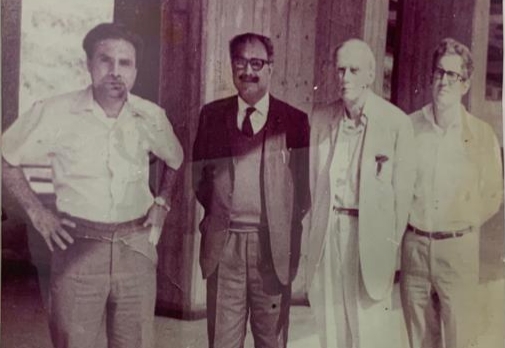
Muneer Ahmad Rashid, born in 1934, is a Pakistani mathematical physicist and Emeritus Professor of Applied Mathematics at the Centre for Advanced Mathematics and Physics of the National University of Sciences and Technology.
Professor Rashid was born in Lahore where he completed his high-school from Punjab University in 1950 and received a double B.Sc. (Hons) in Physics and Mathematics in 1955. In 1957, he completed his M.A. in mathematics and was a lecturer in mathematics at Government College till 1960. Professor Rashid then travelled to the United Kingdom in 1961 for his doctorate at the University of London under the supervision of Professor Abdus Salam who in 1979, was awarded the 1979 Nobel Prize in Physics, along with Glashow and Weinberg, for their contributions to the theory of the unified weak and electromagnetic interaction between elementary particles, including, inter alia, the prediction of the weak neutral current.
During the 1960s, Professor Rashid had closely worked with Abdus Salam's students in the field of SU(3) or Special unitary group. His work is titled Unitary Symmetry: A collaboration of three Israelis and two Pakistanis.
In 1964, he completed his Ph.D. in Generalization of Mass Formula in Unitary Symmetries. Following his doctorate, Professor Rashid returned to Pakistan and joined Quaid–i-Azam University as an Associate Professor in 1968. In September 1968, he travelled to the United States of America where he joined Rochester University as a Visiting Senior Research Associate. He stayed in the USA till 1970.
He returned to Pakistan in 1970, and joined Quaid-i-Azam University as a Professor. He, along with Professor Fayyazuddin, attended the famous Multan Meeting in January 1972. It was here that Professor Salam had nominated numerous mathematicians at the Quaid-i-Azam University to participate in the nuclear research programme. Professor Rashid began to work at PAEC and formed a mathematical physicist research group. He then was transferred to Professor Riazuddin’s Theoretical Physics Group (TPG) where he had closely worked with him in the development of nuclear weapons.
Professor Rashid also submitted his research work obtaining a D.Sc. from the University of London in 1980.
However subsequently due to the anti-Ahmedi movement, Professor Rashid moved to Nigeria where he joined the Ahmadu Bello University, Zaria, Kaduna State, as a foreign professor, teaching there till 2005. In 2005, on the request of Professor Asghar Qadir, the then Director of the Centre for Advanced Mathematics and Physics (CAMP) at National University of Science and Technology (NUST), Professor Rashid returned to Pakistan and joined the CAMP.
Pakistan Mathematical Society awards gold medals to Pakistani mathematicians who have conducted outstanding influential research in the field of mathematics. Professor Rashid, along with other mathematicians, was nominated by the Executive Members of the Pakistan Mathematical Society for the 6th PakMS Medal. The committee unanimously decided to award the 6th PakMS Medal to Professor Muneer A. Rashid for his outstanding contributions in Special Unitary Group, Special Orthogonal Group SO(2) and Dark Energy in particular and his overall impact in the development of mathematics at Quaid-i-Azam University.
Pakistan Mathematical Society's 5th Medal of Honour
Khwaja Dil Mohammad Dil
In our childhood we used to hear from our elders that they have learnt ‘Dil da hisab’. Much later we came to know that it was a book entitled Arithmetic by Khwaja Dil Mohammad Dil and by dil they meant Khwaja Dil Mohammad Dil. He was a Professor of Mathematics, an academic and also a poet. Khwaja Dil Mohammad Dil was born in February 1883 in Lahore in Koocha Gian, behind Kashmiri Bazar, in the family of Khwaja Nizam ud Din. After doing MA in Mathematics from the University of the Punjab, Lahore on 9th July 1907, he joined the well known Islamia College Lahore as a lecturer in mathematics. He continued serving the college in various positions until he retired as its Principal in 1944. He was a Fellow and member of the Syndicate of the University of the Punjab. For almost twenty years he remained a member of the Lahore Municipality. His eminent students include Sheikh Abdullah of Kashmir, Abdul Majeed Salik, Maulana Ghulam Rasool Mehr, Professor Taj Mohammad Khayal and Sheikh Zahid Hussain, first Governor of the State Bank (1948-1953).
Khwaja Dil Mohammad Dil wrote 32 books on various topics in mathematics. They were written in lucid, reader friendly way with a deep understanding of mathematical concepts that those who were afraid of reading mathematics books could easily became interested in reading these books. These books were read not only in the Punjab were popular in the Aligarh, Bombay (Mumbai) and Madras (Chennai) universities. Later they were prescribed in the syllabus of these universities.
Khwaja Dil Mohammad Dil wrote stichomythic translation and exegesis of Sura e Ikhlas by the name of ‘Spirit of Quran’ whereas he translated holy book of Hindus ‘Bhagwat Gita’ entitled ‘Dil ki Gita’ and for Sikhs’ religious books ‘Japji Sahib’ and Sukhmani Sahib’.
He died with cancer on 27th May 1961. A road next to Dyal Singh College, and connecting Nisbat Road is named as Dil Mohammad Road.
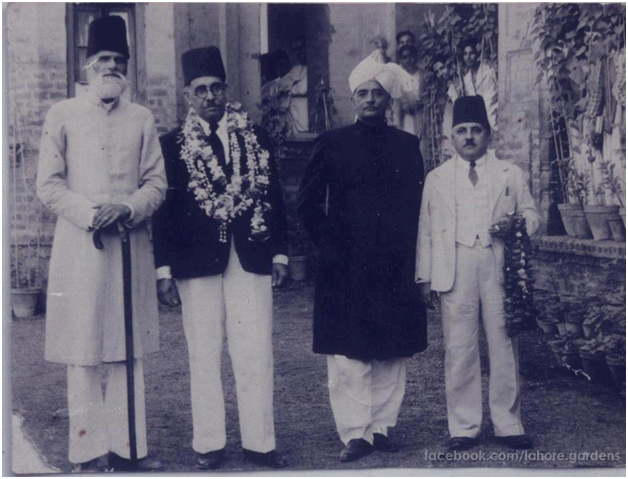
Left to Right: Syed Muhammad Ali Jafari aka Baba Jafari (First-Principal of Islamia College, Lahore 1911), Khwaja Dil Mohammad (A Professor of Mathematics at Islamia College, Lahore), Nawab Muzaffar Khan (A feudal Lord and a donor to the Foundation running Islamia College and other institutions named Anjuman Himayat-e-Islam, He was the grandfather of Tariq Ali Ex-President, Oxford University Student Union), Syed Mohsin Shah (Ex-President Anjuman Himayat-e-Islam)
Courtesy: Aqeel Abbas Jafri / Abdullah S. Jafari Visit, Like and share Lahore - The City of Gardens: An online archive of 2000+ Historical Photos/Images of Lahore — with SYED Mohsin shah, Khwaja Dil Mohammad, Principal Islamia College, Lahore, khawja dil Mohamad, Muhammad Khurram Farooqi and Sana Choudhary.
Pakistan Mathematical Society's 4th Medal of Honour
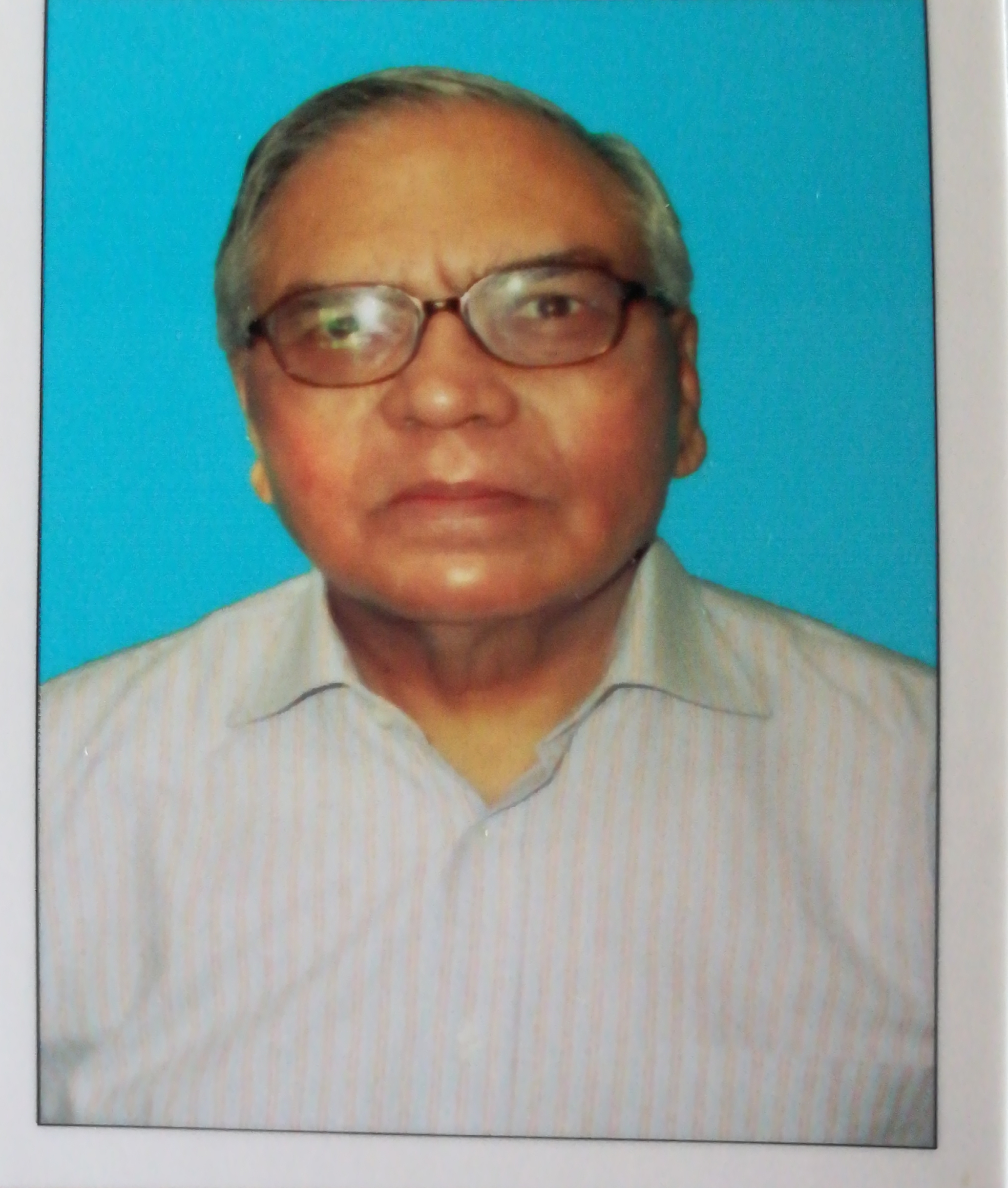
Professor Dr. Javed Ahsan obtained the degree of Ph.D. in mathematics from the university of Dundee, Scotland, UK in 1972. In recognition of his continuous research work, Hungarian Academy of sciences awarded him the degree of D.Sc.(The Doctor of Science) in 1985.
After his Ph.D. degree, he joined the University of Islamabad (now called Quaid-e-Azam University) as an Assistant Professor. In 1974, he was a Fulbright visiting lecturer at California State University, Hayward. He was again a visiting Lecturer there in 1976. In 1972, he participated as a visiting scientist at International centre of Theoretical physics, Trieste, Italy at the summer school of Global Analysis and its application. In 1975, he was again invited to participate in the summer course on Complex Analysis at ICTP, Trieste, Italy.
In 1977, he joined the King Fahd university of Petroleum and Minerals (KFUPM) as Assistant Professor of Mathematics. At KFUPM, he was promoted to Associate Professorship in 1981, and to full Professorship in 1984. The academic years 1982/83, he spent at the University of Kentucky, Lexington, as a Visiting Associate Professor. At Lexington, he carried out research work in collaboration with Professor Ed Enochs who was the initiator of the notion of injective cover.
In 1983, he returned to KFUPM, Dhahran, Saudi Arabia in 1984 and he was promoted to full Professorship there. After spending a few years at KFUPM, he was invited again by the Quaid-e-Azam University which he joined in 1988 as Professor of Mathematics. Concurrently, he held appointments as an Associate Member and as a Senior Associate Member at the ICTP, Trieste, Italy.
He participated in a number of international Conferences, Colloquia, and workshops. In 1991 he received first prize from the National Book Council, Ministry of Education for his Research work in Mathematics. His research work is cited in a book of Carl Faith on Ring Theory published by Springer-Verlag in 1976. He has published books on a Homological Approach to the Theory of Monoids in 2008 and on Fuzzy Semirings with Application to Automata Theory in 2012.
Pakistan Mathematical Society's 3rd Medal of Honour
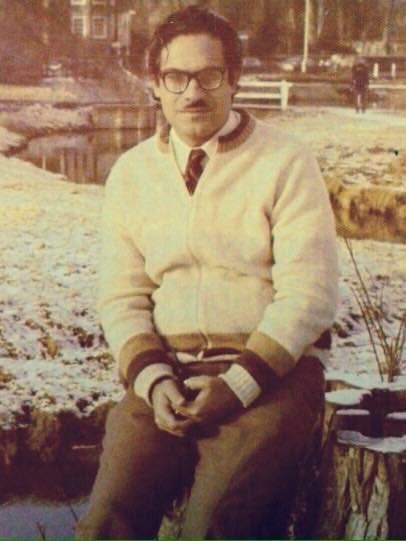 Dr. MUMTAZ HOSAIN KAZI was born on 1st December 1938. He received his M.A. from the University of the Punjab in 1958. M.S. from Harvard in 1964 and Ph.D. from Cambridge in 1974. He started teaching at the University of the Punjab in 1958 and served as a Chairman, Department of Mathematics for brief period from 1977 to 1978. He was the Editor of the Punjab University Journal of Mathematics from 1976 till his death. In the late sixties he took active part in the movement to modernize the syllabi and courses of mathematics in the Pakistan Universities. He was highly proficient in various branches of the subject. In 1978, Dr. Kazi joined the Faculty of Science of the University of Petroleum and Minerals at Dahran, Saudi Arabia, soon after he became sick with fatal multiple myeloma in 1980. Nevertheless, it did not stop him from working as an academic and researcher. He continued to edit the Punjab University Journal of Mathematics with dedication and selflessness. He and his collaborators applied the Wiener-Hopf technique to the problem of Love Waves in the Earth's crust and were able to solve some out-standing problems. He published in journals on topics which include seismology, functional analysis and mathematical statistics. Dr. Kazi was recommended on 12th July 1979 for appointment as Professor of Applied Mathematics by the Punjab University. He did not accept the offer due to the medical care that he was essential for his health in Riyadh. The Punjab University granted his request for retirement from service on medical grounds with effect in September 1983. Dr. Kazi breadth his last in Riyadh on 19th June 1987.
Dr. MUMTAZ HOSAIN KAZI was born on 1st December 1938. He received his M.A. from the University of the Punjab in 1958. M.S. from Harvard in 1964 and Ph.D. from Cambridge in 1974. He started teaching at the University of the Punjab in 1958 and served as a Chairman, Department of Mathematics for brief period from 1977 to 1978. He was the Editor of the Punjab University Journal of Mathematics from 1976 till his death. In the late sixties he took active part in the movement to modernize the syllabi and courses of mathematics in the Pakistan Universities. He was highly proficient in various branches of the subject. In 1978, Dr. Kazi joined the Faculty of Science of the University of Petroleum and Minerals at Dahran, Saudi Arabia, soon after he became sick with fatal multiple myeloma in 1980. Nevertheless, it did not stop him from working as an academic and researcher. He continued to edit the Punjab University Journal of Mathematics with dedication and selflessness. He and his collaborators applied the Wiener-Hopf technique to the problem of Love Waves in the Earth's crust and were able to solve some out-standing problems. He published in journals on topics which include seismology, functional analysis and mathematical statistics. Dr. Kazi was recommended on 12th July 1979 for appointment as Professor of Applied Mathematics by the Punjab University. He did not accept the offer due to the medical care that he was essential for his health in Riyadh. The Punjab University granted his request for retirement from service on medical grounds with effect in September 1983. Dr. Kazi breadth his last in Riyadh on 19th June 1987.
Pakistan Mathematical Society's 2nd Medal of Honour
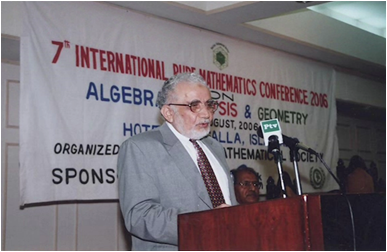
Professor Dr. B A Saleemi is an eminent mathematician who has made notable research and contributed to the field of immersed manifolds. Prof. Dr. Saleemi did his PhD in Differential Geometry from Liverpool, UK in 1966. He did his Masters from Punjab University, Lahore in 1958.
He was the Chairman of Department of Mathematics, Quaid-i-Azam University from 1978 to 1980. He also remained Dean/Chair, Faculty of Basic Sciences, Air University Islamabad for about 7 years. He also served in different international universities namely, King Abdul Aziz University Jeddah, Saudi Arabia, Al-Fateh university Tripoli, Libya and Tabriz University Iran.
He attended and participated in numerous national and international seminars and conferences. Professor B A Saleemi is author of the book entitled “Set Theory” and is also a co-author of a well known book on Topology. Professor B A Saleemi published 18 research articles in national and international journals during the course of his career. He is renowned for his work on Morse theory and its applications and total absolute curvature of immersed manifolds.
Pakistan Mathematical Society's 1st Medal of Honour
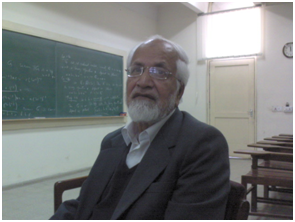
Prof. Dr. S.M Yusuf was a notable Pakistani mathematician who made a commendable contribution to the fields of semigroups and linear operators. He was twice Dean, faculty of natural sciences, Quaid-i-Azam University, Islamabad from 1981 to 1987.
He was an author of 15 books, 21 research articles and attended several international conferences in Iran, Hungry, Saudi Arabia, Italy, Germany and U.K. He did Mathematical Tripos from Cambridge University in 1955. He did his PhD from University of Tennesse USA in 1959 as a Fulbright scholar.
He supervised 7 M.Phil students. He was awarded Tamgha-e-Imtiaz in 1968. He is renowned for his work on characteristic automorphism of group, inner transformations of inverse semi-groups and in particular to his contribution to inverse semigroups in the form of Jordan Holder Theorem.
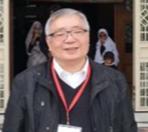 PakMS sadly announces passing away of Professor Kar Ping Shum. He was a friend and a great support in many academic matters. His role as an external referee of Pakistani PhD students and his role in supporting the International Pure Mathematics Conference in Islamabad will always be remembered with gratitude. May his soul rest in peace. President, Pakistan Mathematical Society.
PakMS sadly announces passing away of Professor Kar Ping Shum. He was a friend and a great support in many academic matters. His role as an external referee of Pakistani PhD students and his role in supporting the International Pure Mathematics Conference in Islamabad will always be remembered with gratitude. May his soul rest in peace. President, Pakistan Mathematical Society.